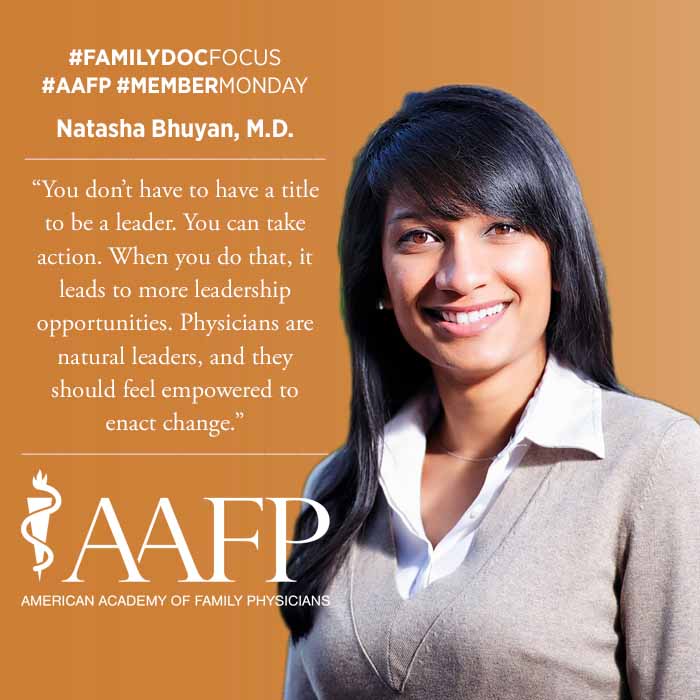Want to Be a Physician Leader? Just Take the Reins
September 17, 2018 08:43 am David Mitchell – Natasha Bhuyan, M.D., wants primary care physicians to feel empowered, and she's leading by example.
Six months after she completed her residency training, Bhuyan was named her new clinic's medical director. Nine months later, she was promoted to district manager for her company's four Arizona clinics and named director of learning and development. Two years later, she was promoted again to emerging markets medical director for the company, which has offices in seven other states.
"I was sort of doing these roles before I got the titles," Bhuyan said. "I was working with our new markets and supporting other offices' medical directors. You don't have to have a title to be a leader. You can take action. When you do that, it leads to more leadership opportunities. Physicians are natural leaders, and they should feel empowered to enact change."
The problem for many physicians, however, is that leadership isn't part of their training.
"As a med student and resident, there is such a hierarchy," she said. "You're taught to stick to an algorithm. You're a follower. In training, you're not often given effective leadership skills. Leadership and advocacy aren't in the standard curriculum, although I was lucky enough to have that exposure."
Bhuyan has developed a leadership curriculum for her company to teach physicians skills such as effective team-building and conflict resolution.
"As more physicians are going into an employed model, family physicians worry about loss of autonomy and loss of control," she said. "The way you get that back is to develop a pipeline of physicians who are leaders. That's my mission, to have physicians in true leadership positions -- not just management. If you're a manager, you have people who work for you. If you're a leader, you have people who will follow you."
Bhuyan said her rapid-fire series of promotions showed that her colleagues respected her clinical abilities despite her youth. She said it's important for physician leaders to continue to provide patient care along with their other duties.
"Otherwise, how can you support your team?" she said. "Being a good clinician is our only currency we have with our colleagues. Building that trust is part of being a good leader."
Bhuyan said physician leaders can also improve the culture of their organizations by serving as mentors.
"Groom someone to take your role in the future," she said.
Bhuyan also is a public voice for family medicine. She makes regular appearances in the Phoenix broadcast media to talk about public health issues, such as influenza, and she also reaches patient audiences through frequent interviews in popular national publications and websites such as Bustle, Popsugar and Teen Vogue.
"It's important for the public to see family physicians speaking about a wide range of health issues," she said. "I'm talking about allergies though I'm not an allergist, and I can talk about migraines though I'm not a neurologist because I manage those conditions. That's important to show people that they don't necessarily need go to a subspecialist."
